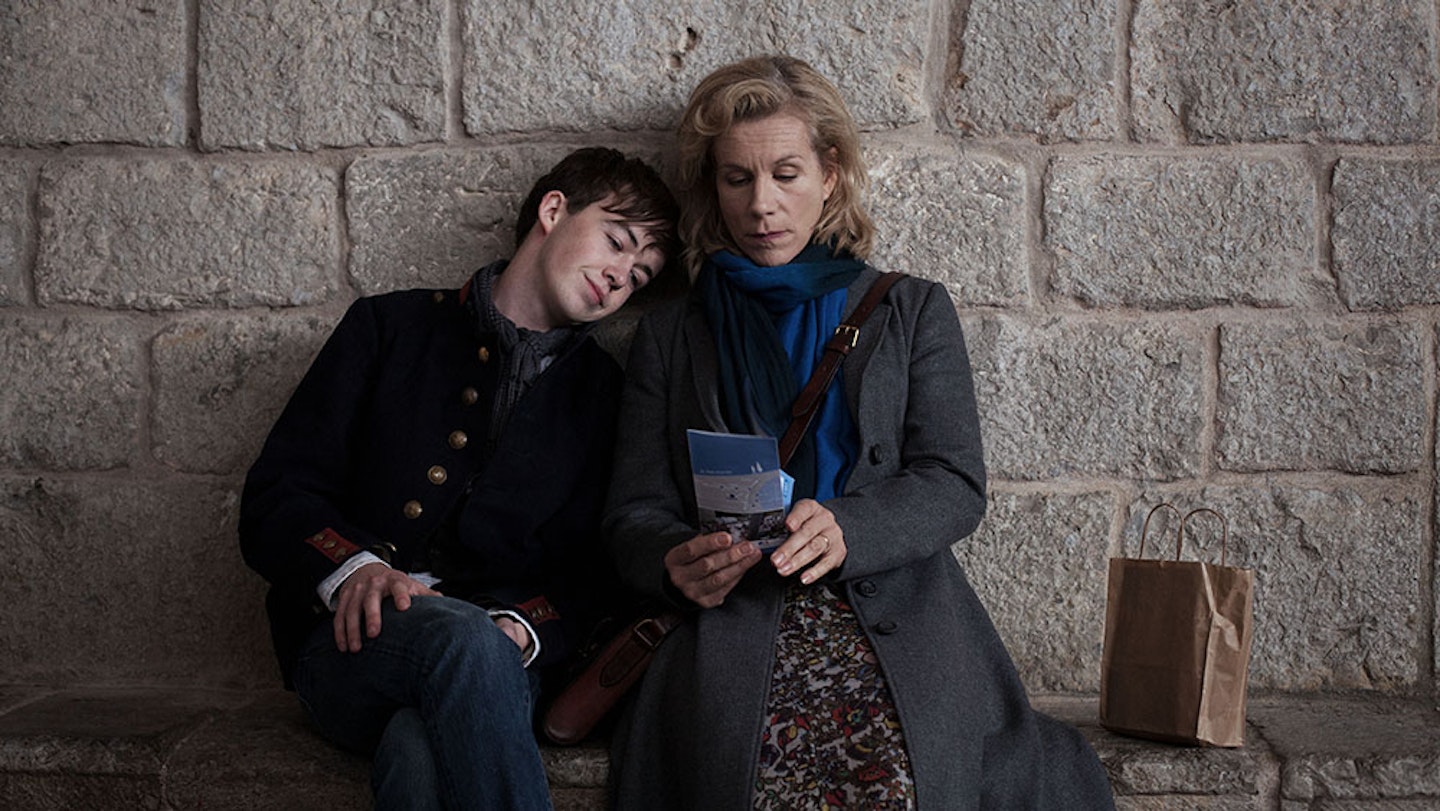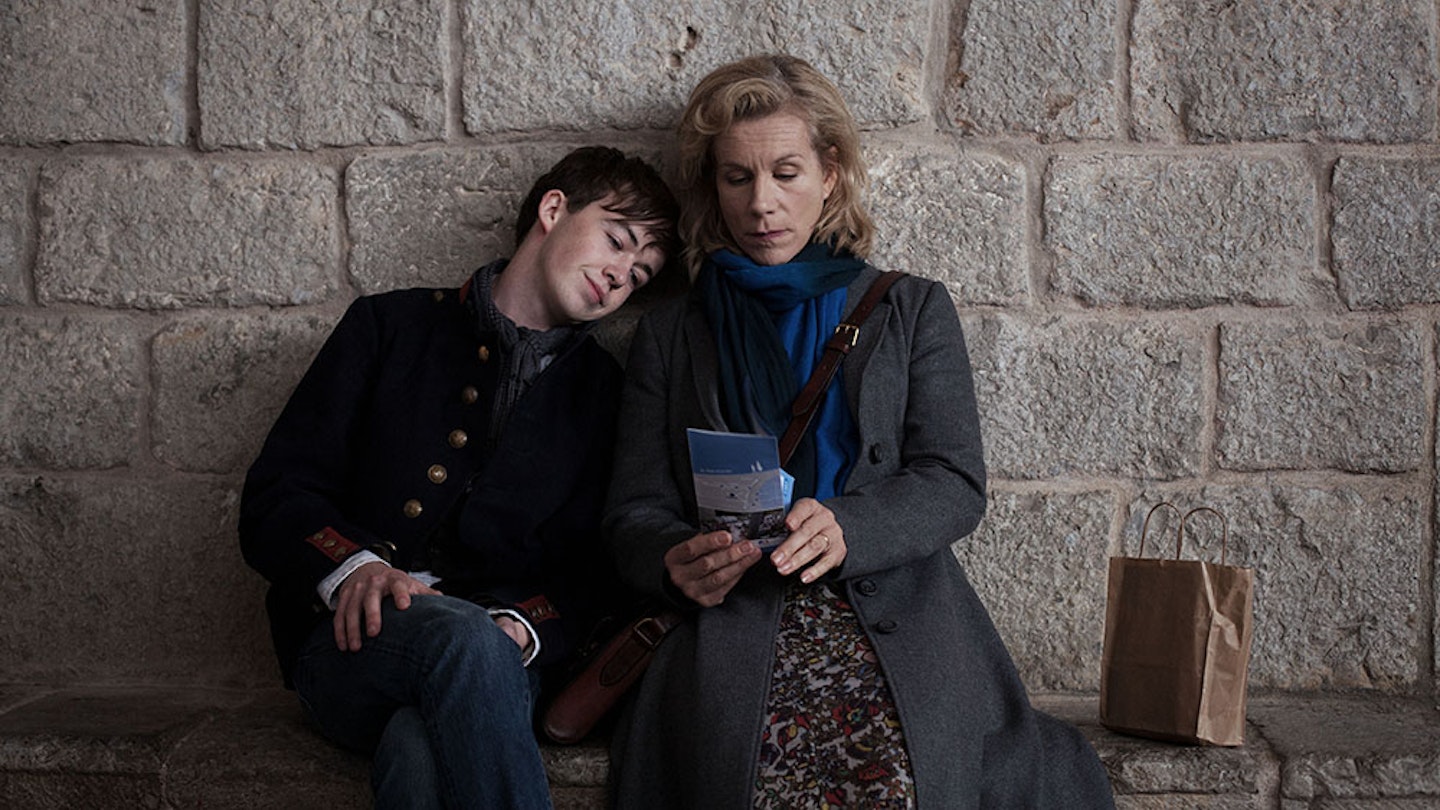Hormones are raging in this beautifully shot, quietly involving character study powered by an excellent turn from teenaged talent Lawther, who played the young Alan Turing in The Imitation Game. A sensitive young gay man with an almighty crush on a boy who may or may not return his feelings, Elliot has a few things in common with the young Turing, though he has more of an affinity with poetry than numbers. Flitting restlessly around the countryside wearing a battered military jacket, Elliot is a bored romantic in need of a project. When macho French boy Clément becomes a regular visitor, he enhances the fantasy life of Elliot as well as, potentially, his mother Beatrice.
It’s a credible portrait of privileged teenaged angst.
The horror of a mother flirting with her son’s new friend is communicated in a subtly witty fashion: Departure is acutely aware of Elliot’s social awkwardness, potential for embarrassment and his strained relationship with his mother. Showing events largely from his point of view, it’s a credible portrait of privileged teenaged angst where the potential source – divorce – is only tackled head on towards the end of the film.

It’s a visually stunning film, the rural setting captured beautifully by cinematographer Brian Fawcett. Stevenson is terrific as she wraps up the remnants of a marriage and struggles to connect with her son, but insight into her character is limited. The internal conflicts of Clément are interesting, but also only touched upon.
Writer-director Andrew Steggal’s greatest interest lies in the emotional turmoil of his excitable, sensitive young hero, who’s eager to jump out of the closet into the arms of a local bit of rough. Perhaps that’s as it should be: Departure is about a teenaged hero who is entirely wrapped up in himself and who idolises his fantasy figure: getting to know the boy’s flaws could break the spell.
